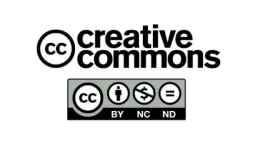EDUC 4150
Journal 1
Different Generations of e/Learners
Gregory Wedel
VCC student number 000383707
Objective:
The question I decided to write about is “What do you know about these generations that will be important to consider in designing your course”. Several economic and social factors have contributed to the increase of different age groups working and learning together in the workforce and in higher education. As a facilitator, I feel one of the most important things to take into account when dealing with a class of multi-generational students is their learning preferences/communication styles. This is especially relevant when designing a blended, or fully online course in the Digital age. Wager (2005) says, “… the landscape of higher education is changing… For example, the number of adult learners continues to increase at many colleges and universities.”
Reflective:
I chose this question because of how it relates to my own personal experiences of having to learn new technology-based communication skills because of a recent career change. Being in an unfamiliar educational environment as an older Gen X adult was stressful, unsettling, and humbling. I went from “do I really need to know this” to “I have to know this”. Certain types of extrinsic motivation, (such as having to succeed in a new job so you can pay your bills) can be stressful, and, as I found out, can seriously affect a learner’s emotional state.” Regarding the challenges for adult learners, Wagner stated “Beyond the obvious difference of age and time away from the classroom, adult learners may not have the same comfort level or familiarity with technology—and they may be the least advised on how to use it” (Wager, 2005, 10.6). I went from being an expert in my field to having to ask people half my age, (Gen Y and Z) how to use certain Apps and programs, or how to record a podcast on my phone etc. The nice thing was they were, for the most part, more than willing to help.
Interpretive:
From a “Digital Immigrants” perspective, my Aha! moment was that you can’t be scared to ask for help, even from a younger generation, (including your own students). For myself as a facilitator, this can be very productive in establishing a rapport in a class, (f2f or online), a sort of quid pro quo, meaning, regardless of your age and experience, we are all here to help each other learn and grow. This also helps to show students from all generations the importance of being a life long learner, and that its OK if you don’t know everything. “The sheer volume of information can be overwhelming, and this exponential information overload may be difficult for some learners to process, as they must be able to access the value and relevance of this new information” (Bryan,2013). As an older teacher, another example of asking for advice in regards to a multi-generational classroom, is to take full advantage of your institution’s younger instructors.’ They can be a wealth of information on how to best connect with and educate the younger Gen. Y, Gen. Z students. Networking with other instructors in this way can be mutually beneficial to everyone involved.
Decisional:
Based on my previous andragogical experiences as a digital immigrant/student, and teacher, for an online course, I would try and take into consideration the unique perspectives and values of each generation, with emphasis on designing team building, multi-generational group activities that allow each generation to share and benefit from each others skills and experience. (An example would be to have each multi-generational team make a video on a given topic, and post it to YouTube). This would be administered through the extensive use of discussion groups, live chat, live online group meetings etc., through such products as Skype, and Zoom. (I feel this would help a lot of the older students to become comfortable using online resources that they might not normally use, well still keeping the younger generations engaged). I would supplement these team activities with a variety of individual projects, giving the students a choice of several different ways to complete a particular assignment. The idea would be to “personalize” certain projects to suit different generations of students. (An example of choices might be to write an essay, or make an animated video about a topic). The over all theme for my online course would be to develop a “learning community” that emphasises the importance of students to use not only their facilitator , but their fellow students, as a resource, “Fostering connections and respect invites adults to access their experience, to reflect, to engage in dialog, and to allow their histories to give meaning to particular academic or professional knowledge-all of which enhance motivation to learn” (Wlodkowski, 2008, p. 103). Young or old, people can be a wealth of information, especially if your trying to navigate through the ever-changing educational landscape in today’s digital world.
References:
Bryan, V.C., & Wang, V.C.X. (Eds.). (2013). Technology use and research applications for community education and professional development. Hershey: PA: IGI Global.
Wager, J. (2005). Support services for the Net Generation. In D.G. Oblinger & J.L. Oblinger (Eds.). Educating the net generations (pp. 10.1-10.18). Educause. http://www.educause.edu/educatingthenetgen/ [viewed October 1, 2012].
Wlodkowski, R.J. (2008). Enhancing adult motivation to learn: A comprehensive guide for teaching adults (3rd ed.) San Francisco: Josey-Bass.
